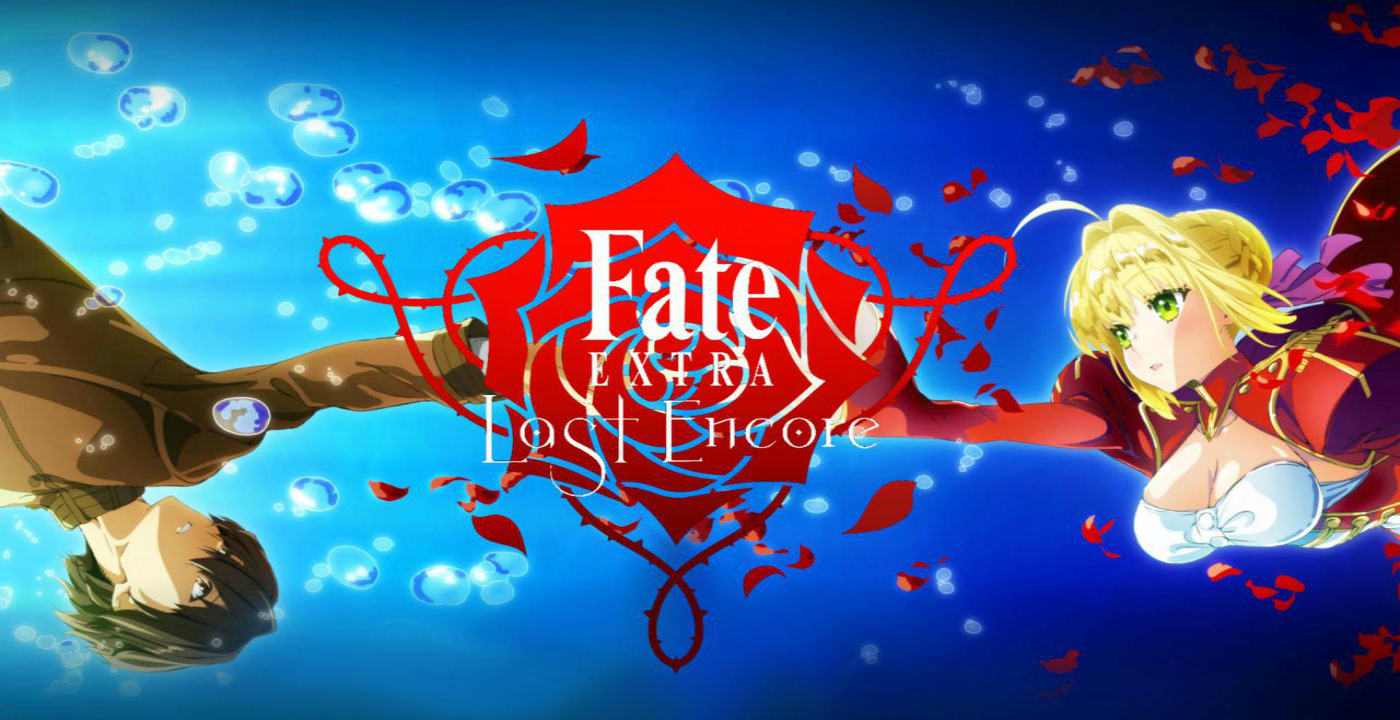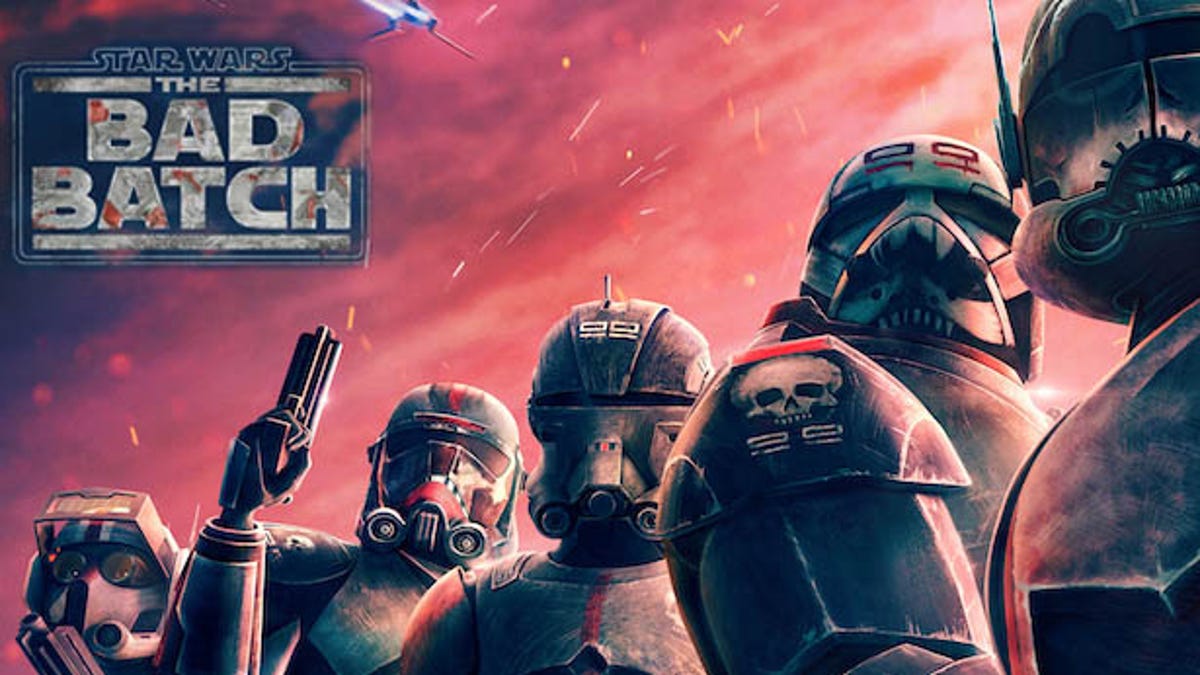English Dub Series Review: Fate/Extra Last Encore
In episode two of Fate/Extra Last Encore, protagonist Hakuno Kishinami complains, “That was all pretty hard to follow.” In the final episode of the series, Saber says something similar: “Honestly, I have not understood much on our journey.”
These comments pretty much sum up my feelings on this series. Did I understand what was going on? Maybe about 50% of it. Did I enjoy the show anyway? Absolutely.
Overview
When we first meet him, Hakuno Kishinami attends a computer simulation disguised as a school. Students seem to die regularly, and their bodies are incinerated in a designated room. The computer then decides to conduct a purge of its students: those who kill a classmate will ascend to the next stratum and secure a place in the Holy Grail War, while all others will be eliminated. Hakuno remembers virtually nothing about himself or his past—except that he bears a fierce hatred for this school and everything in it. Driven by this hateful nature, Hakuno encounters a powerful “servant” called Saber and enters the Holy Grail War as her “master.”
In this world, servants are the digital recreations of famous historical figures, now serving as expert fighters who battle at their masters’ command. Saber explains that she and Hakuno must travel upwards through seven strata, defeating the “floor master” of each level in order to ascend. If he is declared the winner, Hakuno will receive the Holy Grail and be granted a wish. Hakuno does not understand why he is so driven to win, but with Saber’s enthusiastic support, he determines that he will do so whatever the cost.
Our Take
Perhaps the most successful element of this series is its animation. Crisp fight scenes take place in front of luscious, magnificently colored backgrounds. Characters’ faces are expressive and detailed. The entire third stratum is a triumph of design, a psychedelic wonderland of different textures and objects that all appear hand-drawn. The soundtrack (composed by Satoru Kosaki) is also excellent, making the battles more epic and the dialogue more emotional. The third stratum, again, boasts brilliantly executed music: a monster possesses time-altering powers that can reset events at will, so the music skips periodically as if someone is briefly pausing a recording.
Yet I cannot speak so highly of this series’s writing. I was frustrated at what felt like an uphill battle to understand both the world Hakuno lives in and Hakuno himself. In the opening episode, we are thrown into a baffling and complex school life without any context. Why do so many students die on this campus? Why did a student literally die because he lost a chess game? Why did the nurse ask a student to bury a body? Plot elements that seem interesting are brought up and then promptly abandoned. Leonardo B. Harwey, the victor of that deadly chess match, is introduced as the heir to the Western European Conglomerate. This is a fascinating concept, but neither Leo nor the Conglomerate is ever mentioned again. Similarly, when Hakuno delivers the body for incineration, he is plagued by visions of trauma from his past that are never explained. Presumably, these will be addressed in the follow-up film to the series—to be released in Japan later this month—but the show still feels uncomfortably unfinished, ridden with far too many plot holes for comfort.
In a similarly confusing manner, the events of the third stratum are presented out of chronological order and are very difficult to follow. We meet four separate characters there, and I have absolutely no idea which one is the floor master was or how they’re all connected. And although characters spend a fair amount of time delivering exposition-filled monologues, I still don’t feel like I understand the difference between in-world concepts like SE.RA.PH or the Moon Cell. Perhaps viewers are expected to already know this information from watching previous Fate series or from playing the Fate/Extra video game. But for first-time viewers? It’s incomprehensible.
The motivations of characters are equally unclear. We are clearly supposed to think of Hakuno as dull and ordinary—he has unremarkable brown hair, wears a brown school uniform, and rarely contributes to Saber’s battles. Although his main personality trait is his hatred for others, he only kills when necessary and appears to genuinely like most of the people he encounters; in practice, Hakuno doesn’t seem particularly hateful at all. What we’re left with is a protagonist who isn’t very relatable or memorable. Although we eventually get an in-series explanation for Hakuno’s milquetoast personality, I’m not sure it’s a good enough excuse for him to be such a boring protagonist. Other characters are similarly lacking in interesting traits—in fact, an entire plot point hinges on side characters Rin and Rani being basically interchangeable.
An exception to this rule is Saber, whose boisterous excitement never failed to make me smile. Part of the credit for Saber’s likability goes to Cassandra Lee Morris, whose superb voice acting highlights the character’s blend of regal self-importance and supportive enthusiasm. But the relationship between Saber and Hakuno is also genuinely sweet, and I grew to root for them simply because of how hard they rooted for each other.
Spoilers Ahead!
In episode nine, Saber reveals that she is the Roman Emperor Nero (yes, that Nero). I happen to be something of a Roman history aficionado, and I was pretty impressed by this series’s dedication to portraying Nero’s personality accurately (except for the time they called the Domus Aurea a theater when it was really a palace). The show did an excellent job of dropping hints to her true identities throughout, such as references to gladiators, her admission to loving both men and women, and her constant metaphor of life as a performance. The decision to paint such a controversial figure in an almost wholly positive light was fascinating to me, and it made Saber and Hakuno’s interactions all the more powerful. When Hakuno learns that he is actually a Death Face, a creature created solely for the purpose of hatred and slaughter, Saber is promptly able to accept him anyway. If anyone could understand a mass murderer, after all, it would be Emperor Nero.
And this show does have interesting things to say about the glorification of violence. Saber encourages Hakuno to stand up for himself, to keep advancing his own interests, even if that means he must fight. At the same time, the series introduces several characters locked in eternal, pointless battle simply due to their own stubbornness, and presents these situations as immeasurably tragic. “Battles and carnage should not take over your life,” says Saber. “Do not forget flowers, beautiful music, the feeling of gratitude.” Throughout his journey, Hakuno learns to stop comparing himself to others and to focus on the people close to him. Despite his murderous true nature, despite whatever happened in his past, Hakuno is able to accept himself—and accept Saber—and keep working towards their shared goal. It’s actually pretty inspiring.
End Spoilers
In conclusion, this plot is loose at best, and it was pretty normal for me to come away from episodes confused. But once I gave up on understanding everything in full, I really did enjoy this series. There’s a lot of interesting worldbuilding, the battle scenes are pretty entertaining, and the interactions between Saber and Hakuno are earnest and satisfying. It’s not the most polished series out there, but it’s definitely a fun watch.
Score
Summary
At times a thin and confusing plot, but well-executed and entertaining

























Hi Ashley, thank you so much for reading and we love the feedback. Note that on that day we had 14th posts go up and only ten posts show on the front page, so it's possible the preview had already been archived by the time you got to it. One recommendation would be to add our RSS feed to your favorite news aggregator service like Feedly, this way you get all of the latest posts!